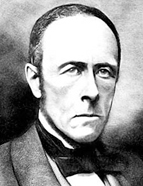

It was in this context that Herculano resumed his position as political actor, but now under the guise of an eminent public intellectual who, in light of the distance of the ministries and legislative power, fought for a programme combining political-administrative decentralisation, agrarianism, and the promotion of small-scale land ownership. In 1851, in the wake of the socio-political conflicts of the late 1840s in Portugal, and of the 1848 European revolutionary wave, Herculano took part in the conspiracy that put an end to the second government of Costa Cabral. He turned down the post of minister of the kingdom, however some of his close contacts (Joaquim Filipe de Soure and José Ferreira Pestana) managed to form the subsequent government headed by Field-Marshal Saldanha, albeit for a short period of time. (Martins, Portugal contemporaneo, II, 294-295). From then on he became strongly opposed to the course taken by the “Regeneração” [“Regeneration Period”] which he had initially sponsored, but which now appeared to lead back to the old absolutist centralism. As far as Herculano was concerned, the reactionary impetus was disguised by a discourse that was liberal only in name; it was camouflaged by a frenzy of public works and material improvements, supported by wide offers of credit in the international capital markets. Herculano repositioned himself (and was repositioned) to the left of the political spectrum, moving closer to the remaining Setembristas, in alliance with whom the dissident chartists like himself supported the so-called Partido Histórico [Historical Party]. Nevertheless, Herculano continued to oppose the democratic ideals and universal suffrage, in line with what he had already sketched in A voz do profeta (Carvalho, As ideias políticas e sociais de Herculano [The political and social ideas of Herculano], 21-40) He continued to be controversial, at this stage in the political press, particularly against “liberal absolutism”, authoring opinion pieces for journals such as O Paiz [TheCountry] and O Português [The Portuguese Citizen], the foundation of which was linked to his name. In 1854, upon winning the elections as an anti-government candidate he became mayor of the newly created (extinct by the end of the century) Belém council, which provided him with the opportunity to attempt to put into practice the municipalism premises at the heart of his political positioning and historical interpretations. He resigned in October 1855, shortly after one of his many micro-political skirmishes with Rodrigo da Fonseca Magalhães, a minister of the kingdom (Ledesma, “Las plumas”, 191-193; Saraiva, Herculano e o Liberalismo, 19-25; 213-231; 264-266).
It should be noted that while he intensified his political activity, as a publicist and council administrator (he was also in charge of the royal libraries of Lisbon), Herculano worked arduously on the research and collection of historical documents. In 1844, in mid “self-exile” from political activity, he edited Anais de D. João III [Annals of King João III] authored by Frei Luiz de Sousa, a manuscript formerly presumed lost.
